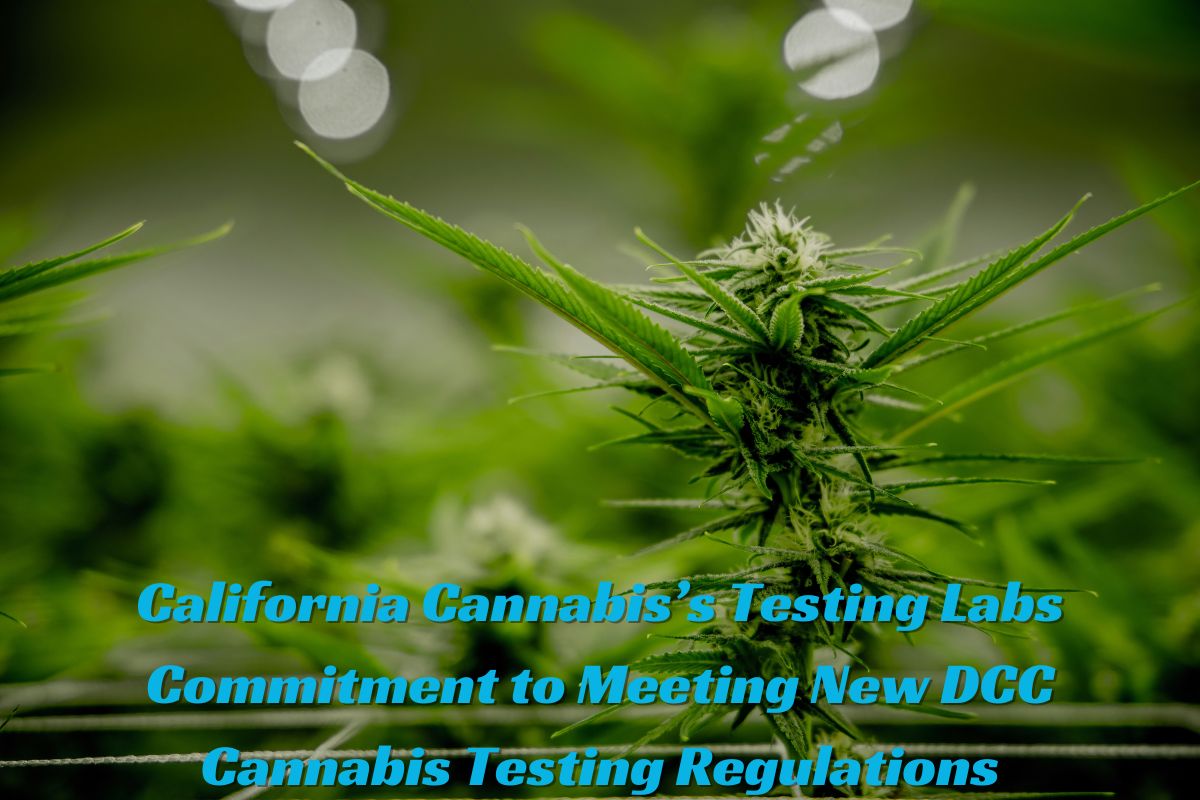California’s cannabis market is undergoing a profound transformation as the Department of Cannabis Control (DCC) rolls out enhanced testing regulations. These changes are designed to ensure that products meet consistent quality, safety, and labeling standards statewide. The updated framework addresses previous gaps in lab reporting, product contamination, and documentation inconsistencies across the supply chain.
From stricter contaminant thresholds to elevated lab accreditation requirements, the new rules demand more structured compliance strategies. Many operators, such as California Cannabis Testing Labs CCTL, are turning to digital tools, refining internal procedures, and investing in additional staff training to stay aligned with the DCC’s expectations.
Understanding the New DCC Testing Regulations
The Department of Cannabis Control has introduced updated testing rules aimed at improving product safety and consistency across California’s cannabis industry. These changes reflect the state’s ongoing effort to strengthen consumer protection while ensuring that cannabis products meet reliable quality standards.
The revised regulations began rolling out in 2023, with full enforcement expected by 2024. They were developed in response to concerns about inconsistent lab results and the presence of contaminants in some products on the market. These updates are part of a broader regulatory push to align cannabis testing with public health priorities. This shift emphasizes the importance of transparency and uniformity across a growing, statewide industry.
In practical terms, the new rules seek to create a uniform testing framework that all licensed operators must follow. A cultivator in Northern California and a distributor in Los Angeles are now subject to the same testing thresholds and lab reporting expectations, reducing discrepancies and improving accountability statewide.
Key Requirements for Cannabis Testing Compliance
Cannabis businesses must now meet stricter testing thresholds for contaminants such as pesticides, heavy metals, and microbial impurities. These benchmarks are more clearly defined under the new DCC framework, aiming to eliminate ambiguity in what is considered a compliant product.
Alongside updated limits, the DCC now requires more robust documentation and traceability throughout the testing process. Products must be properly labeled with accurate cannabinoid profiles and batch tracking information that aligns with state-mandated reporting systems. These records need to be readily available for review, especially during inspections or audits. Businesses unable to present timely documentation run the risk of product holds or penalties, which can disrupt operations.
Smaller manufacturers who previously relied on less formal testing workflows are being pushed to adopt more structured procedures. By applying the same testing standards across the board, the DCC is tightening gaps in oversight and moving the industry toward a more professionalized model of compliance.
Effects on Businesses and Daily Operations
Compliance with the new testing rules means operational changes for many cannabis licensees. Cultivators may need to adjust how they handle post-harvest processes, while manufacturers could face delays if test results take longer to clear under the updated protocols. Distributors, in turn, are responsible for verifying that all inventory meets the new standards before it enters the retail supply chain.
Some operators are investing in in-house compliance staff or expanding their quality assurance teams to stay ahead of regulatory expectations. This shift can add to operational costs but also helps businesses avoid penalties and maintain consumer trust. In a competitive market, a clean compliance record can be a differentiator. Teams are also exploring automation tools to streamline repetitive compliance tasks without compromising accuracy.
Businesses in more rural parts of California have reported challenges coordinating with certified labs, especially where fewer testing facilities are available. In such cases, logistics and transportation become critical components of staying on schedule and within compliance windows. Some operators are even considering mobile lab partnerships or expanding delivery logistics to meet timelines.
Role of Licensed Testing Laboratories
Testing labs now play a more integral role in the cannabis supply chain, with the DCC requiring them to meet higher standards for accreditation, equipment calibration, and result consistency. Labs must follow uniform protocols to ensure that results are reliable and reproducible, no matter where the product is tested across the state. This consistency is key to building trust among regulators and consumers.
Operators are encouraged to work only with DCC-recognized labs that have proven track records of accuracy and transparency. A misstep in lab selection can result in delayed product release or, worse, failed batches due to questionable data. Some brands have even shifted to long-term partnerships with trusted labs to streamline communication and reduce the risk of compliance friction. These collaborations can also lead to faster turnaround times and improved operational efficiency.
Avoiding Common Violations
One of the most common pitfalls businesses face is incomplete documentation. Missing batch IDs, inconsistent test dates, or mislabeled cannabinoid content can trigger compliance flags during state audits. These errors, while often unintentional, can result in fines or forced product destruction. In some cases, such mistakes may even damage a brand’s reputation among retailers and consumers.
Another frequent issue is relying on labs not authorized under the new DCC structure. Operators who fail to verify their lab partners risk invalidating test results, which can jeopardize entire product lines. Staying updated on the DCC’s approved lab list and maintaining thorough internal checks helps reduce these risks. It’s also beneficial to conduct regular reviews of all compliance vendors to ensure they remain in good standing.





